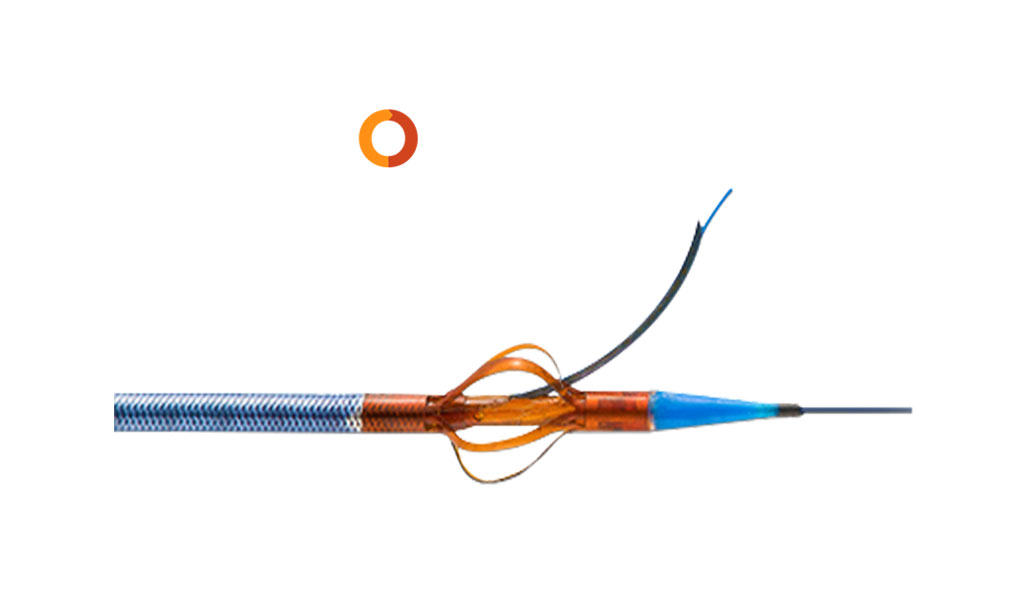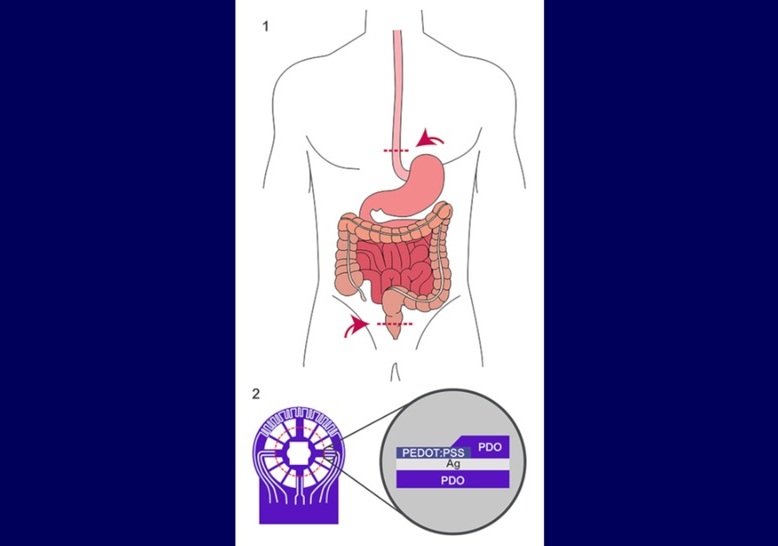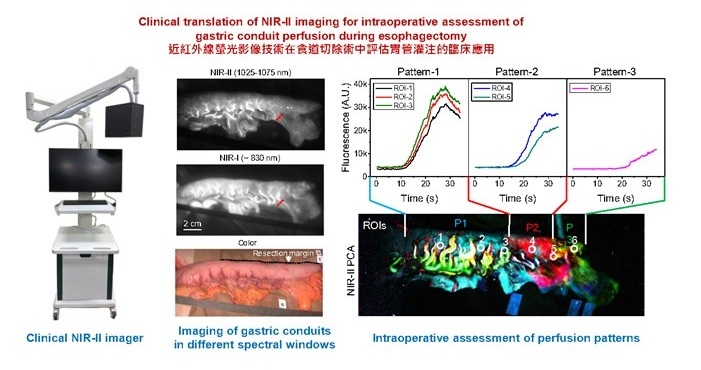Disruptive Endovascular Solution Offers Minimally Invasive Alternative for Femoropopliteal Bypass Procedure
|
By HospiMedica International staff writers Posted on 10 May 2023 |

Currently, the "gold standard" treatment for patients with long blockages in the superficial femoral artery (SFA) is the invasive open femoropopliteal bypass. Endovascular techniques employed for these blockages often have high complication rates. Now, a new system offers patients an alternative treatment method, combining the advantages of both open and endovascular procedures.
The DETOUR System, developed by Endologix LLC (Irvine, CA, USA), enables Percutaneous Transmural Arterial Bypass (PTAB), a unique therapy that delivers a fully percutaneous femoropopliteal bypass through the femoral vein. Designed to treat patients with moderate to severe peripheral arterial disease and long SFA blockages, the DETOUR System employs the ENDOCROSS Device and TORUS Stent Graft.
The DETOUR2 Investigational Device Exemption (IDE) study showcased a 12-month primary patency rate of 72.1% in SFA lesions with an average length of 32.7cm. Notably, the trial achieved a 100% technical success rate in 202 patients, along with a 30-day Major Adverse Event Rate of 7%. This composite outcome includes death, CD-TLR, target limb amputation, symptomatic deep vein thrombosis (DVT), pulmonary embolism (PE), and the requirement for transfusion of packed red blood cells (PBRC) during the index procedure. The average hospital stay was just 1.1 days. The DETOUR System, currently an investigational device that has received FDA Breakthrough Device Designation, was recognized as the "Medical Device Engineering Breakthrough" winner at the 7th annual MedTech Breakthrough Awards.
“This award from MedTech Breakthrough is another strong validation of our strategy to expand our product portfolio into the large peripheral vascular market opportunity. Patients with long SFA blockages face tradeoffs with current treatment options. We know that open surgery of any kind is associated with complications that can negatively affect patient quality-of-life,” said Matt Thompson, MD, President and CEO of Endologix. “What makes PTAB with the DETOUR System truly unique is that, as demonstrated in our IDE study's 12-month results, it offers a minimally invasive therapy with comparable patency to open surgery while avoiding many of the complications associated with more invasive procedures. Once approved, the DETOUR System will offer a fully percutaneous femoropopliteal bypass and will provide a disruptive, innovative therapy for the treatment of long-segment SFA disease, thereby expanding the treatment options available for these patients.”
“While open surgery is still technically the gold standard for long-term durability, the reality is that not every patient is a candidate for that procedure and it can carry more risk for the patient,” said James Johnson, managing director, MedTech Breakthrough. “The DETOUR System has the potential to introduce a minimally invasive alternative for patients in need of a femoropopliteal bypass. The breakthrough solution may offer the best of both worlds: a durable, minimally invasive endovascular solution with the patency of open femoropopliteal bypass. The low MAE rate, coupled with good primary patency, provides supportive evidence for the feasibility of this new technology in a challenging patient population. Congratulations to the Endologix team on being for our 2023 ‘Medical Device Engineering Breakthrough’ award.”
Related Links:
Endologix LLC
Latest Critical Care News
- Soft “Cyborg” Cardiac Patches Improve Stem Cell Heart Repair
- Soft Wearable System Offers Continuous Wireless Monitoring of Neonatal Health
- AI-Enhanced Wearables Could Transform Type 2 Diabetes and Prediabetes Care
- Breathable Electronic Skin Paves Way for Next-Generation Wearable Devices
- AI Transforming Colon Cancer Diagnosis
- Ventricular Assist Device Offers Long-Term Use in Children Waiting for Donor Heart
- Precision Approach Improves Immunotherapy Effectiveness for ICU Patients with Sepsis
- Soft Robots Could Donate Their Heart to Humans
- Bioadhesive Strategy Prevents Fibrosis Around Device Implants on Peripheral Nerves
- Miniature Non-Invasive Robotic Catheters to Improve Infertility Treatments
- Stick-On Patch Monitors Baby's Movements In Utero
- EEG-Based AI Technology Accurately Diagnoses Alzheimer’s and Dementia
- Robot Lymphatic System Paves Way for Self-Powered Wearables and Machines
- Focused Ultrasound Technique Successfully Treats Pediatric Brain Cancer
- Nasal Drops Fight Brain Tumors Noninvasively
- AI Helps Optimize Therapy Selection and Dosing for Septic Shock
Channels
Surgical Techniques
view channel
Implantable Absorbable Sensor Detects Life-Threatening Complications After Intestinal Surgery
Intestinal anastomoses are among the riskiest procedures in abdominal surgery, with complications such as circulatory disorders or immune reactions often developing rapidly and unpredictably.... Read more
New Study Findings Enable Improved Ventilation During Complex Lung Surgery
Major lung surgery requires temporary collapse of one lung while the other is mechanically ventilated, a process that increases strain on the functioning lung and raises the risk of complications such... Read morePatient Care
view channel
Revolutionary Automatic IV-Line Flushing Device to Enhance Infusion Care
More than 80% of in-hospital patients receive intravenous (IV) therapy. Every dose of IV medicine delivered in a small volume (<250 mL) infusion bag should be followed by subsequent flushing to ensure... Read more
VR Training Tool Combats Contamination of Portable Medical Equipment
Healthcare-associated infections (HAIs) impact one in every 31 patients, cause nearly 100,000 deaths each year, and cost USD 28.4 billion in direct medical expenses. Notably, up to 75% of these infections... Read more
Portable Biosensor Platform to Reduce Hospital-Acquired Infections
Approximately 4 million patients in the European Union acquire healthcare-associated infections (HAIs) or nosocomial infections each year, with around 37,000 deaths directly resulting from these infections,... Read moreFirst-Of-Its-Kind Portable Germicidal Light Technology Disinfects High-Touch Clinical Surfaces in Seconds
Reducing healthcare-acquired infections (HAIs) remains a pressing issue within global healthcare systems. In the United States alone, 1.7 million patients contract HAIs annually, leading to approximately... Read moreHealth IT
view channel
EMR-Based Tool Predicts Graft Failure After Kidney Transplant
Kidney transplantation offers patients with end-stage kidney disease longer survival and better quality of life than dialysis, yet graft failure remains a major challenge. Although a successful transplant... Read more
Printable Molecule-Selective Nanoparticles Enable Mass Production of Wearable Biosensors
The future of medicine is likely to focus on the personalization of healthcare—understanding exactly what an individual requires and delivering the appropriate combination of nutrients, metabolites, and... Read moreBusiness
view channel
Philips and Masimo Partner to Advance Patient Monitoring Measurement Technologies
Royal Philips (Amsterdam, Netherlands) and Masimo (Irvine, California, USA) have renewed their multi-year strategic collaboration, combining Philips’ expertise in patient monitoring with Masimo’s noninvasive... Read more
B. Braun Acquires Digital Microsurgery Company True Digital Surgery
The high-end microsurgery market in neurosurgery, spine, and ENT is undergoing a significant transformation. Traditional analog microscopes are giving way to digital exoscopes, which provide improved visualization,... Read more
CMEF 2025 to Promote Holistic and High-Quality Development of Medical and Health Industry
The 92nd China International Medical Equipment Fair (CMEF 2025) Autumn Exhibition is scheduled to be held from September 26 to 29 at the China Import and Export Fair Complex (Canton Fair Complex) in Guangzhou.... Read more















